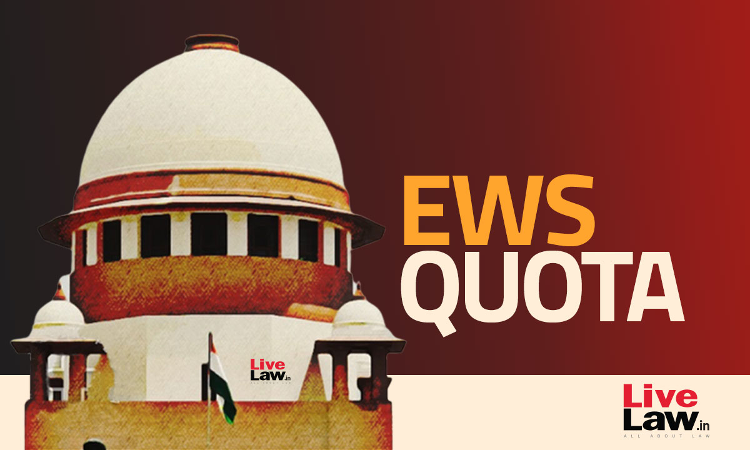EWS Reservation- Supreme Court Constitution Bench Hearing- LIVE UPDATES
LIVELAW NEWS NETWORK
13 Sept 2022 10:33 AM IST

Live Updates
- 13 Sept 2022 12:58 PM IST
Arora: Expression weaker section of people is wider than backward classes or SCs and STs...
Arora: Provisions of 46 shall not be confused with 16(4) & should not be confused with backward classes. Purpose of 16(4) is limited and carves out a particular class of people and not individuals from weaker sections. The concept of weaker sections in 46 has no such limitations.
- 13 Sept 2022 12:42 PM IST
Arora: Poverty induced by backwardness is one thing but poverty which can be changed by work is another. So historically if you've been backward because you haven't had access- that is social backwardness leading to poverty.
Arora: But poverty as a result of loss of job, employment, lack of individual efforts or abilities- that was not intended. That can be changed.
- 13 Sept 2022 12:40 PM IST
Bhat J: What is representation? Essentially it is empowerment. Look at 15(3)- for women. Before, the original constitution stopped at just 15(3), when 15(4) was adopted- you needed it by Champakam. The idea in 15(4) and 16 are representational as is 15(3)...
Bhat J: So those who have representation are given it on a permanent basis. Over and above representation. You're ensuring certain minimum representation. Despite the fact that they're already represented.


